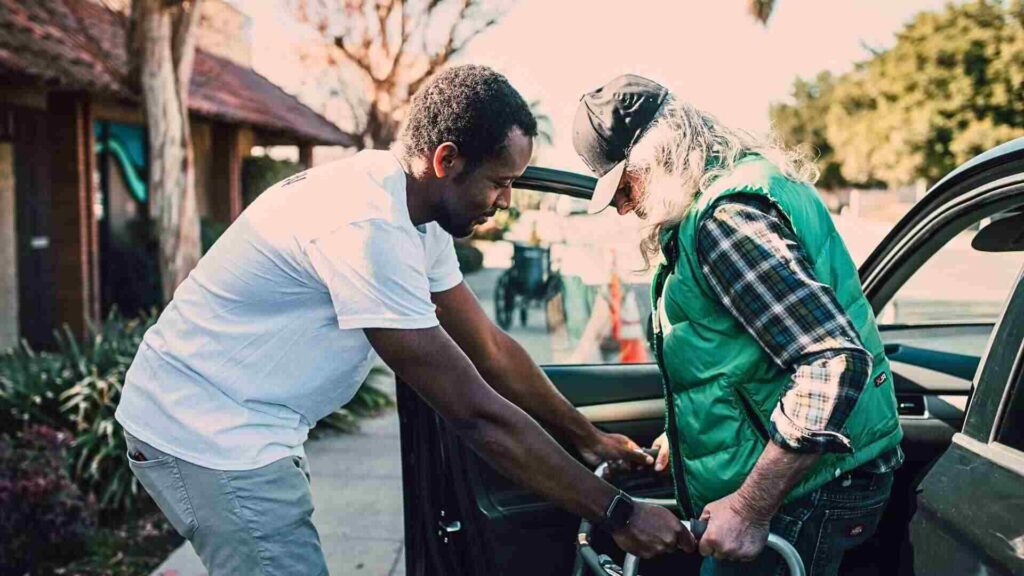When feeling depressed, it’s common to experience fatigue and apathy, making activities seem hard and uninteresting. It’s okay to have days when your mood feels low, and you might feel defeated. To discover your passion, start by setting aside time to explore anything that sparks even a slight interest.
Remember, motivation often wanes, but you can slowly build it back. Begin with small steps, like trying a new hobby or revisiting an old one. Don’t let lack of energy rob you of joy; instead, aim for slightly better days by focusing on what feels good and brings a smile. It’s okay to start small.
If you want to learn that how to find your passion when you are depressed then stay with us and continue reading.

Why is it So Hard to Find My Passion?
When dealing with depression, it’s easy to get stuck in a loop of negative thinking where you constantly remember negative memories and feel like nothing positive will happen. This mindset makes it hard to even predict a better future. It’s discouraging and often de-motivates you from trying new things because it feels like more bad experiences will follow.
This global feeling of hopelessness makes it tough to break free, as it feels like everything is hard and nothing can improve. However, it’s crucial to challenge these thoughts to discover a new path forward.
When you’re depressed, even simple tasks like brushing your teeth feel exhausting and pointless. Day-to-day activities can seem boring or mundane, making it difficult to enjoy things. You may have fewer moments where you feel passionate or find fun in life, and it’s hard to find a way out of this low state. Starting small is important.
Stuck in the Loop of Depression Thoughts
It often feels like you’re caught in a cycle where you constantly hear the same negative thoughts, like a radio tuned to depression. It’s like the voice in your head repeats that you can’t do anything, that you’re useless or not wanted, and these thoughts start tinting everything. You might start losing confidence and recognizing these thoughts as absolutes—telling yourself you always fail, or you never succeed.
This mental loop can make it difficult to take even a small step, like going for a walk or speaking kindly to yourself. Tuning out of this “depression radio” involves tools like celebrating small wins, building self-esteem, or even talking to a therapist who can help you break these patterns. It’s about raising your awareness and counteracting those harmful thoughts with a new focus on your unique qualities and passions.
The Trap of Constant Comparison
When you’re depressed, it’s easy to fall into an endless rut of comparing yourself to others. You look at other people who seem happier, and you wonder why you’re not where they are. You might scroll Instagram and see people celebrating a new job promotion, working on their passion, or playing the success game. In this comparison, you always feel like the loser at the party, believing others are in a better position while you’re in a worse situation.
But the key is to compare yourself only to who you were yesterday, by stopping the rat race and realizing that the real power is in taking one step at a time. As Lily Tomlin said, the problem with the treadmill of life is you never truly win by constantly running. Instead, focus on celebrating small wins each day and asking yourself what you’re proud of and how you can improve by doing your own thing.
Chasing an Emotion Instead of Passion
When you’re depressed, it’s common to feel like you’re constantly chasing the emotion of excitement or joy to find your passion. But emotions, like the weather, fluctuate and vary, and treating them as your guide can lead to frustration. I’ve been there myself, thinking that if I could just feel better or more motivated, I would find what I’m passionate about. However, chasing a feeling can be elusive, as emotions change with time.
It’s important to remember that passion isn’t about the high of excitement, but rather about accepting the ups and downs. There was a time I refused to take the antidepressants my doctor prescribed, thinking I needed to battle through on my own. But when I eventually accepted help, I started to feel the cloud lift, and I learned how much of my struggle was about battling emotions rather than finding a real sense of purpose.
Passion, like loving a baby even though they’re pooping everywhere, is about loving the small nuggets of life, even when they’re messy. You might not feel passionate all the time, and that’s okay. Firstly, recognize that passion is not some perfect state you’ll reach once you’re done battling depression.
It’s about accepting where you are in the moment and taking simple steps, like trying new activities, while letting go of the pressure to feel a certain way. Practicing self-acceptance can help you grow more passionate about life, even if it feels difficult now. Passion isn’t a goal you reach, but a process of doing things that grow over time, much like how love for a child grows, even when they create chaos.
How to Find Your Passion When You are Depressed
When we are depressed, we suffer from a lot of difficulties, so in such a situation, different methods can be tried which are effective, and we will describe them in detail. So, that if you are also suffering from such a problem, you will be able to cope with this situation.
Viewing Depression as a Learning Opportunity
It’s hard to believe when you’re depressed, but depression and anxiety can be signs that something is missing in your life. According to Dr. Linda Metcalf, a specialist in Solution-Focused Brief Therapy, these feelings aren’t your enemy, but rather a signal that your current plan may not be working.
They’re an indication that something needs revision, and that now is a good time to ask yourself what’s missing and go about finding it. This process of exploring what’s not working can help you develop a more concrete action plan and lead to figuring out what truly drives your passion. Seeing this as a chance to reflect and make changes can ultimately help you feel better and find your balance again.
Reconnecting with Your Inner Child’s Fascination
As we get older, we often lose sight of the simple delights we once enjoyed as children. With increasing amounts of responsibility, like school, work, and other duties, the free time we had to pursue things that made us happy as kids seems to vanish.
The hobbies and interests we once loved now feel distant or even evasive. This sense of loss, combined with feeling depressed, makes it harder to reconnect with what used to bring joy. But if you think back to the activities you loved when you were young—whether it was climbing trees, playing sports, or creating art—you may find that these moments of pure, absorbed participation can help reignite a spark inside you.

Children often live in a world full of fantasies, imagination, and creativity, and as adults, it can feel like that part of us has dried up. But it’s still there, just harder to retrieve after years of neglect or even deprivation. If you used to spend hours creating two-dimensional or three-dimensional works of art or got lost in fiction, poetry, or music, those activities might hold clues to what your passion is now.
Wondering how to access this? You can start by doing things that once brought you that sense of pure joy. Whether through journaling, talking into your smartphone, or even dancing, you can begin expressing your inner world in small ways. This can help you build a clear channel to your creativity.
Reconnecting with this inner child is not just about doing the things you once loved, but about gaining clarity and ownership over your internal experience. Every thought, action, and creation you express can help you build a new foundation for your passion. It’s an important first step in recovering something that has perhaps long been forgotten—a powerful resource that can lead you back to a sense of purpose and joy.
Lower Your Expectations When Depressed
One of the greatest challenges when you’re depressed is feeling like you have to wait until you feel better before you can do anything. You might think you need to be happy or motivated in order to take action, but the danger in this is that you could end up waiting forever. It’s important not to expect yourself to magically feel better.
A wise expression from the 12-step community says to “act your way into a better mood, not wait for the mood to come.” Instead of waiting for the perfect mood to strike, start by aiming for a neutral state. This doesn’t mean you’ll immediately find your passion, but by staying open and trying something new, you may begin to shift your mindset slowly.
It’s helpful to start by improving awareness of how you’re feeling throughout the day. Track your emotions and energy levels—rate them on a scale to see where you tend to feel your best or worst. Pay attention to when you’re hungry, tired, or physically uncomfortable, as these are indicators that you may need some self-care.
Understanding these fluctuations in your body can be the first step toward improving how you feel. Even simple interactions with someone or noticing a shift in your social environment can give you clues about what makes you feel okay or even good.
It’s also crucial to give yourself breathing room from tasks like work or school that may seem overwhelming. While it’s tempting to focus only on things that bring financial rewards or approval from others, constantly chasing after these external validations can leave you feeling more anxious and guilty. Take some time off, if you can, to refresh and rediscover what you once enjoyed.
As Dr. Marsha Linehan from Dialectical Behavioral Therapy suggests, finding balance between your wants and your shoulds is key to recovery. You don’t need to blow off all your responsibilities, but giving yourself space to reconnect with small joys can help restore that spark in your life.
Revisiting Old Hobbies May Not Be the Solution
When you’re depressed, you might wonder if going back to your old hobbies will help you feel better. It’s natural to try things that once made you happy before you became depressed, like playing chess or participating in creative activities.
However, it’s important to understand that your interests might have changed due to your current low mood. Even if chess was one of your favorite pastimes and you once participated in tournaments or took classes, returning to it now may not feel as smooth or rewarding. In fact, it might turn into a burden, causing more stress and worsening your condition, as I experienced when I played blitz for hours, which led to mood swings.
Instead of forcing yourself to return to something you no longer enjoy, it’s okay to explore new things. Sometimes, stepping out of your comfort zone and trying something totally new can bring fresh energy into your life.
For example, if you once enjoyed painting, you might find a new passion in digital graphics or 3D design, rather than going back to old-school ceramics or macramé. Don’t be afraid to look outside your past choices for inspiration—you may discover creative joy in unexpected places.
Build a Routine to Spark Passion
When you’re depressed, finding passion can feel overwhelming, but getting into a simple routine can help. Take time to be patient with yourself, and be willing to try new things even if you don’t feel motivated right away. Start with something small, like joining a weekly group or an exercise class, and go regularly, regardless of how you feel that day.
The key is to build routines that slowly spark interest and skills over time. As James Clear shares in his book Atomic Habits, motivation often starts after you begin doing an activity, so commit to the process and let the passion grow naturally.
Rebuilding Confidence While Depressed
Depression often leads to lost self-confidence and deteriorates your self-esteem over time, leaving you feeling stuck in a prolonged existential crisis. It’s common to experience a lack of interest and confidence, which can make it hard to see the positive aspects of yourself. One of the best ways to rebuild is by using simple CBT techniques that help shift your thinking.
Start small by participating in random activities every week that help you stay active socially and give you a different perspective. By utilizing the rest of your energy wisely, you can manage the small successes that slowly boost your confidence, and helps you to feel more effective in life to turn disappointment into determination.

Embrace the Journey
When you’re dealing with depression and a lack of passion, it’s easy to feel lost. However, facing these challenges can be a springboard for growth. Instead of chasing the idea of being fully un-depressed or constantly purposeful, try to recognize that this journey through life has its highs and lows. Sometimes, the most positive thing you can do is simply be thankful for the small moments, even on a horrid day.
By accepting where you are and continuing to ask questions about what brings meaning, you might find that this season of life is teaching you valuable lessons. Enjoying the process, rather than focusing only on the end goal, helps you see the gift in the experience, no matter how tough it may feel.
Seek Out Real-Life Conversations
When you’re depressed, it’s easy to feel isolated, but devoting quality time to real-life communication is essential. Whether you’re an employee, freelancer, or full-time blogger, it’s highly recommended to find ways to engage in actual activities with people. Meeting new people in person, rather than through online video conferences or just with clients, can make a big difference.
The benefits of natural conversations are enormous, especially if you tend to overthink. Engaging in social interaction helps you stay present, focus on what’s going on around you, and improve your mood. I personally found this when I began improving my English through a group course that was not only fun, but also helped me feel less alone, even though I had been used to taking only one-on-one zoom lessons.
Research has shown that real-life interactions greatly support overall health, which is why we should put these connections at the highest priority. Even if you’re introverted or feel that your condition makes it difficult to connect, spending time with others can help bring a sense of normality to your routine.
I realized after meeting with people that it’s not just about leveling up professionally, but also about feeling better personally. Prioritize social activities in your schedule, and you may notice your mood improving, even after long working hours.
Helping Others to Find Your Passion
When you’re depressed, it can be hard to find your passion because you often feel overwhelmed by your own thoughts and feelings. One of the most effective ways to break out of this is by being of service to others. Helping others not only shifts your focus away from your own struggles, but it also reminds you that you’re not the only person with unmet needs.
By getting out of the house and interacting with people, you can reduce feelings of isolation and reconnect with the world outside your own existence. I knew a lady who felt lost after she retired but found purpose again by volunteering as a hospital greeter, which made her feel valuable despite her physical limitations.

There’s a famous story about Milton Erickson, who helped an older woman by suggesting she plant African violets and give them as gifts for every major life event in her community, like weddings or births. She followed his advice, and over time, she was able to connect with people in a meaningful way, finding a sense of purpose through her small but positive actions.
By focusing on something outside of herself, she brought joy to others and created a large community of friends who appreciated her kindness. This shows that even simple acts of service can lead to a positive change in your life when you feel stuck or lost.
Discover Passion Through New Experiences
Starting a new activity when you’re feeling down can be difficult, but it’s often the first step in changing your mood. Even a small shift, like going out with friends or taking a different walking path, can make a difference.
Recent studies on neuroplasticity even show that practicing yoga can reduce the severity of major depression, proving how new experiences can reshape your mind.
Trying something different not only exposes you to new joys, but it also activates your brain in fresh ways. Whether it’s joining a yoga class, starting a hobby from a random list, or even simply walking a new street, these small actions can help reassemble your current state and bring unexpected pleasure.
Participating in new activities consistently has been found to increase joy and reduce the impact of depression. It’s a critical point to just start doing something, because you never know where that small change will lead.